When you are in England, you drink tea. It’s a way into conversation. “Put the kettle on, love. I’ll have a cuppa.” I want in. I want a seat at the table. They indulge me and are curious and kind, but in the middle of laughing together, the perspective shifts, Hitchcock style, and I am pulled into the vast blackness of their foreign land. I am American after all: rude, naïve, gullible, aggressive, raw. How strange it is to see myself in this way even though, really, it’s the way I’ve been all along. Now there is a name for my outsider-ness. I’m hilarious. I try hard. I’m vulgar. I take the piss. I’m from the land of jazz and fried chicken and guns. Cheers then. But the people aren’t all manners and god save the queen, they get down and dirty, medieval. They can go from “This cake is pahfect” to “Out for a shag, are we darlin?” Yes, now we’re getting somewhere. I fall in love with them all day, their low voices, dirty from smoking and sinister thoughts.
I am here with Ray visiting his family who live in a house that has been here since the 1600s, but it is my first time to this country and it feels like a fairy tale, a place so green and grey and stone and vine that an ogre or a knight could come marching down the lane at any moment. Everything always feels like a story when you are traveling. A story that doesn’t follow a straight line but instead becomes bigger, like a drop of ink on a damp paper-towel.
We walk into the pub at night, eight of us. It is smoky and dark. Ghosts are present and the smell of 100s of years. Regan, the owner, pours pints and tells us he needs to get some tiles out of the back garden, but there are two cars in the way. One of them has a wasp’s nest the size of an old-school TV set buzzing in the back seat. It’s a country dilemma, but has all the ingredients of a great story: characters, setting, intensity, conflict. Ray and his brother offer to help in the morning, and the subject is dropped.
I sit next to Pete who teaches me how to roll a cigarette. “You have to practice to get good at it,” he says, showing me how to roll up with my thumbs, pull tight at the ends. I am useless, but even this becomes part of the conversation, and we lean in laughing. He asks me about LA and it suddenly feels odd to think of it, bright and garish and adolescent. He tells me about going there once for the Academy Awards and bringing his father, a blacksmith who had never been on a plane or worn a tuxedo. When he won the award for best cinematography, Pete dedicated it to him, while his Dad wept openly in the audience. We clink glasses and I can see he has tears in his eyes as well. Nice, I say, setting my glass down, warm beer I can’t finish.
I turn my head to get a look at the back of the room, and I see a strange man walk in, his lined face is haggard, but he makes the effort to smile and bow slightly to no one in particular. He wears a headband in the old Jimi-Hendrix-tie-it-on-the-side sort of way, and he looks 75 but could be 40. He is a guy who has been here for all eternity. Same face, same demeanor, same purpose. Chaucer probably wrote about him. He fetched King Henry’s horse. All over London and especially in the country this is how it is, renaissance faces in modern day clothes.
The elders of the crowd are all old hippies, here for the weekend with the rest of us. They were friends in the ‘60s, worked for Rolling Stone Magazine, got arrested together at protests, did drugs, nursed each other’s babies, became famous, withstood tragedies and deaths, switched partners, or got new ones. Now they continue to get together, once a year, to set up tents and hang out together in the countryside to cook and eat. Everyone is friends, no matter the age difference. Barry, 85, carries a bottle of wine and some glasses as he walks past Charlie. How’s it going mate? he says. Charlie looks up, says Good, and then gets up to follow Barry out to the paddock. Charlie is 3 and nude.
I am far from home, but I know this place. All day I am reminded of something else at the same time I am seeing it. This happens in conversation too. Even the crickets I hear at night, or the way the morning air smells. Everything breaks down into moments, the way it is at home too, the way it is in life. I am washing dishes with Virginia, and I tell her how I step into all these different scenes where something is going on. Virginia has a habit of stopping and looking at you completely for a few seconds before speaking. Her face is lined, and her hair is grey, but she is sexy and intimidating.
That’s a vignette, she says. She hands me a salad bowl. She is telling me about the time she lived in Malibu next to Sam Peckinpah. One night he had a big party and at 3 in the morning they decided to show some movies on the beach, using the ocean as a screen. You could only see it when the waves broke.
That’s so cinematic, I say.
She stops and looks at me again. It was, she says.
We talk about surfers and religion and the ways that people are different breeds, like sheep. And then there are no more dishes to dry. Her ex-husband walks through the room with his current wife, and we all say hello. They leave. She dries her hands on the towel, looks at me again and says, “That was a vignette.”
Vignette 1
I am sitting outside by a huge fire under the black starry sky with Francoise and we are smoking. She is telling me about her “L’annee terrible” and I feel like we are in a French movie because of the hushed and urgent way she speaks. She tells me about how she is breaking up with her boyfriend who is obsessed with himself. Aren’t all men obsessed with themselves? I ask. She nods but keeps talking, like we are walking down a cobblestone street in high heels with our arms linked. When she finishes, we are quiet. I always pick the wrong one, she says, finally.
The wrong ones always seem like the best ones, I say.
A star shoots across the sky and we both gasp quietly.
Vignette 2
I am walking to the orchard with Luca. I want to get apples to make apple crisp and he knows the way. He reminds me so much of my friend John that I feel comfortable not saying a word. His sister is dying of cancer in London and he has come out to the country for a break. After a while we talk about American accents. I teach him how to say, “What the fuck is that?” and “Are you fucking kidding me?”, which we practice in Brooklyn voices through a stretch of path. He’s really good at it. We pass through these little tunnels of overgrowth, trees and vines and leaves so green they’re black. A gang of sheep appears across the way. I say hello to the sheep and they all step in closer, all together, all quietly looking at me. They want apples too. Later, after midnight, I make apple crisp, mixing the flour and butter with my bare hands like a medieval maid. The smell fills the room and afterwards we all eat quietly saying mmm, our spoons clinking against the china
.Vignette 3
In London we are in St. Paul’s cathedral with hundreds of other tourists. The building is so enormous and overwhelming I don’t know how to reconcile it with something as intimate and personal as faith. All I can think about is the poor workers who slaved to build it. Were they proud of themselves? Did they enjoy it. Did they smash their hands with hammers and yell Fuck so loud it echoed?
Heavy, heavy, monumental, overbearing, we mill about, dazed. I grab a headset and want to hear the story about how the building remained standing during the Blitz, protected by the Blessed Holy Spirit, but I can’t listen and take it in at the same time. We walk up the stairs, literally 100 sets, round and round and round a curved stone stairwell, the stone from the steps worn and soft from hundreds of years and people. We walk behind a group of Buddhist monks and when we get to the top, my legs are shaky, but I can see 100 miles in every direction. I ask the monks if I can take their picture, and the guide who is with them says they are not permitted to talk to me because they are celibate, but that he could take a photo with my phone. In the picture they are all posing sweetly, earnestly and I wondered if they even know what their own faces look like.
Vignette 4
I am canoeing with Luca in the river, the sky heavy with clouds from a Turner painting. His sister is back in hospice and he will have to leave tomorrow, and I am sad to see him go and sadder too for the reason. I haven’t been in a canoe since I was 9 but as soon as I am in, I am instantly glad, like there is no other possible place I could be at that moment. We move slowly through the water with beams of sun sifting through the clouds. Max is trying to tell me how to row and I can’t speak I am laughing so hard because I have canoed us into a swampland of reeds. “Are you fucking kidding me?” he says, exactly like DeNiro and that kills me all over. A swan floats by and glares at me and I can barely see because I can’t stop laughing, no sound is coming out at all. I feel as though I could fall out of the boat and sink to the bottom of the sea. When I stop laughing, it is completely silent and a wave of grief passes through me so quickly, I clear my throat. I miss all the people I love, and I have a second of terror at the thought of being alone, and then it’s gone.
I am not different here, I am me magnified. If I can’t see parts of myself when I am at home doing the old usual, I can now. I see certain people in my life as characters in a story that get me from one place to another, who teach me something I need to know. I see ancestors on my father’s side, their feet and down-turned mouth the same as mine. Maybe they laughed like I do or pined for things they didn’t have, genes and spirit are strong like that. I think of all the supporting characters and ones who just have a walk-on, even the ones I haven’t crossed paths with yet, the ones in Sicily and Morocco and Marseille.
On the last day, I walk over to the pub. It is empty at 3pm, at least it is today, but I can hear Regan banging around in the back. Word is out that he lost his chef and he has to do all the cooking even though, according to everyone, he doesn’t know how to boil a potato. I hear pots and pans banging and water running, and I decide not to say anything. I decide to do the French leave, and just disappear without a word.
On my way out, I walk through the old archway and I hear the clunk-clunk-clunk of a wheelbarrow being pushed across cobblestones. I look up and see the old guy with the Jimi-Hendrix headband wheeling out the gigantic hive. He nods at me and I do the same. He pushes the orb to an old white 1940s style ambulance/van. On the side, a sign reads D.E. Lewis, Beekeeper, established 1854, and I have the sudden thought: that was my grandfather’s name.


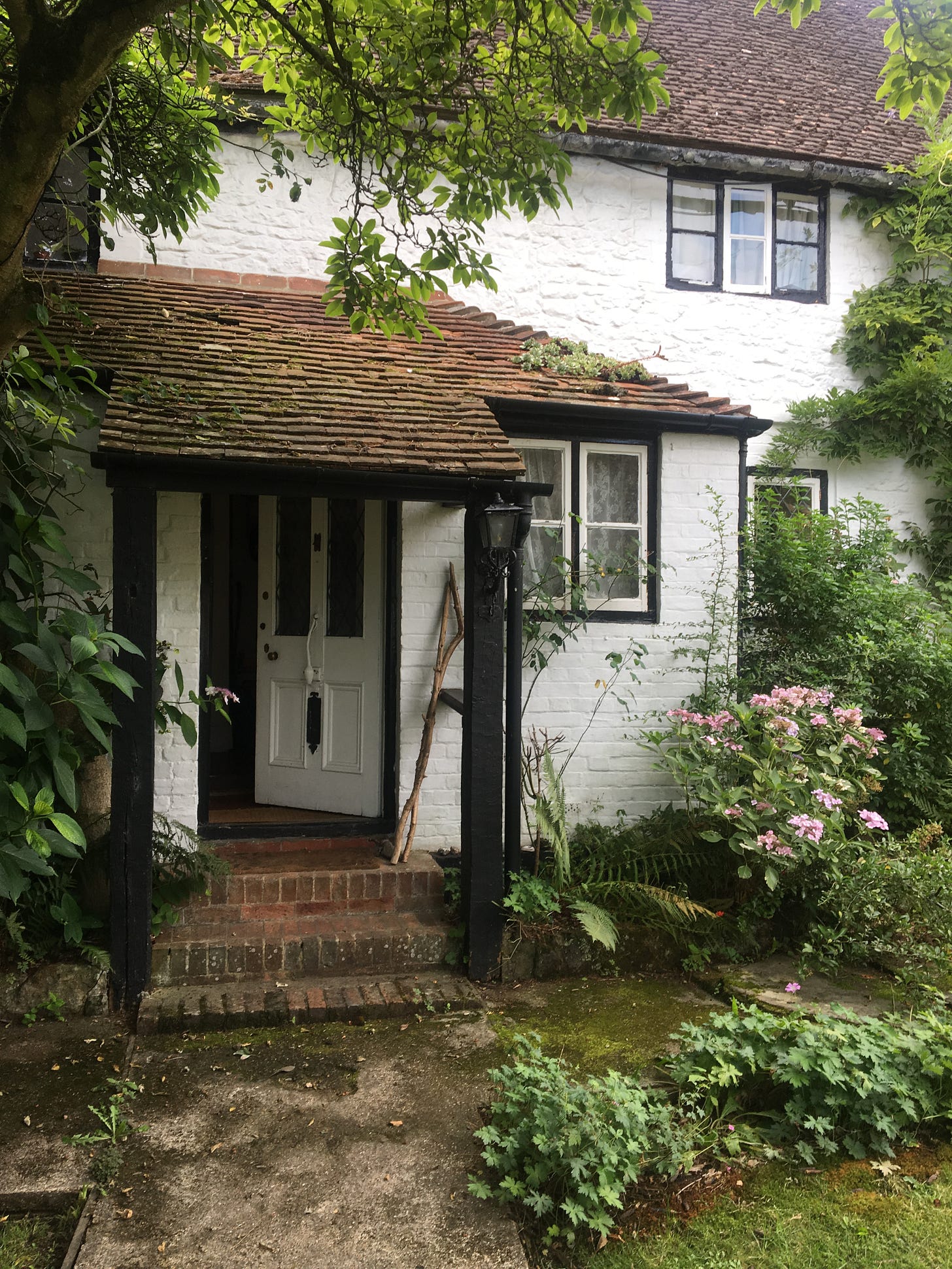
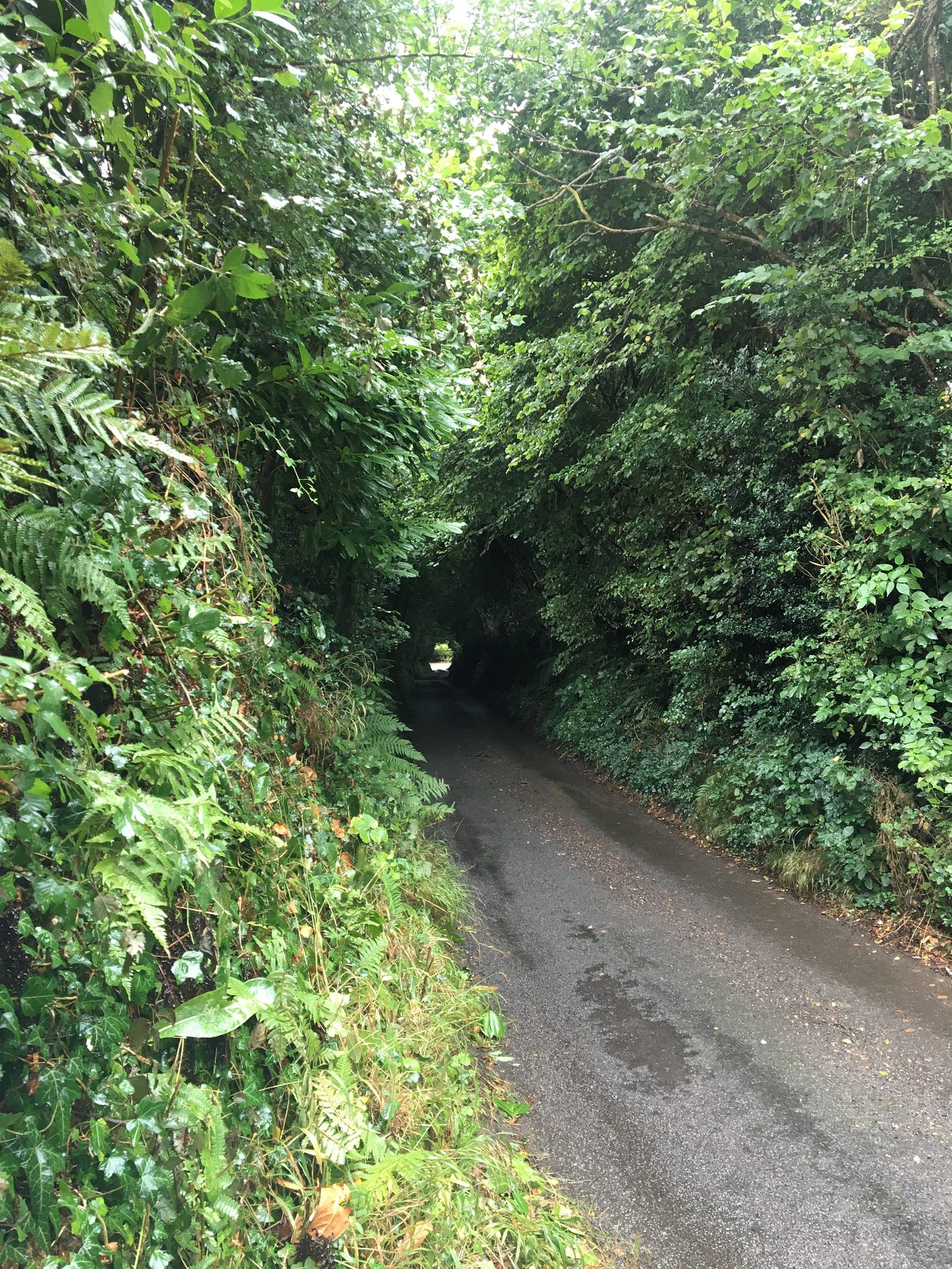
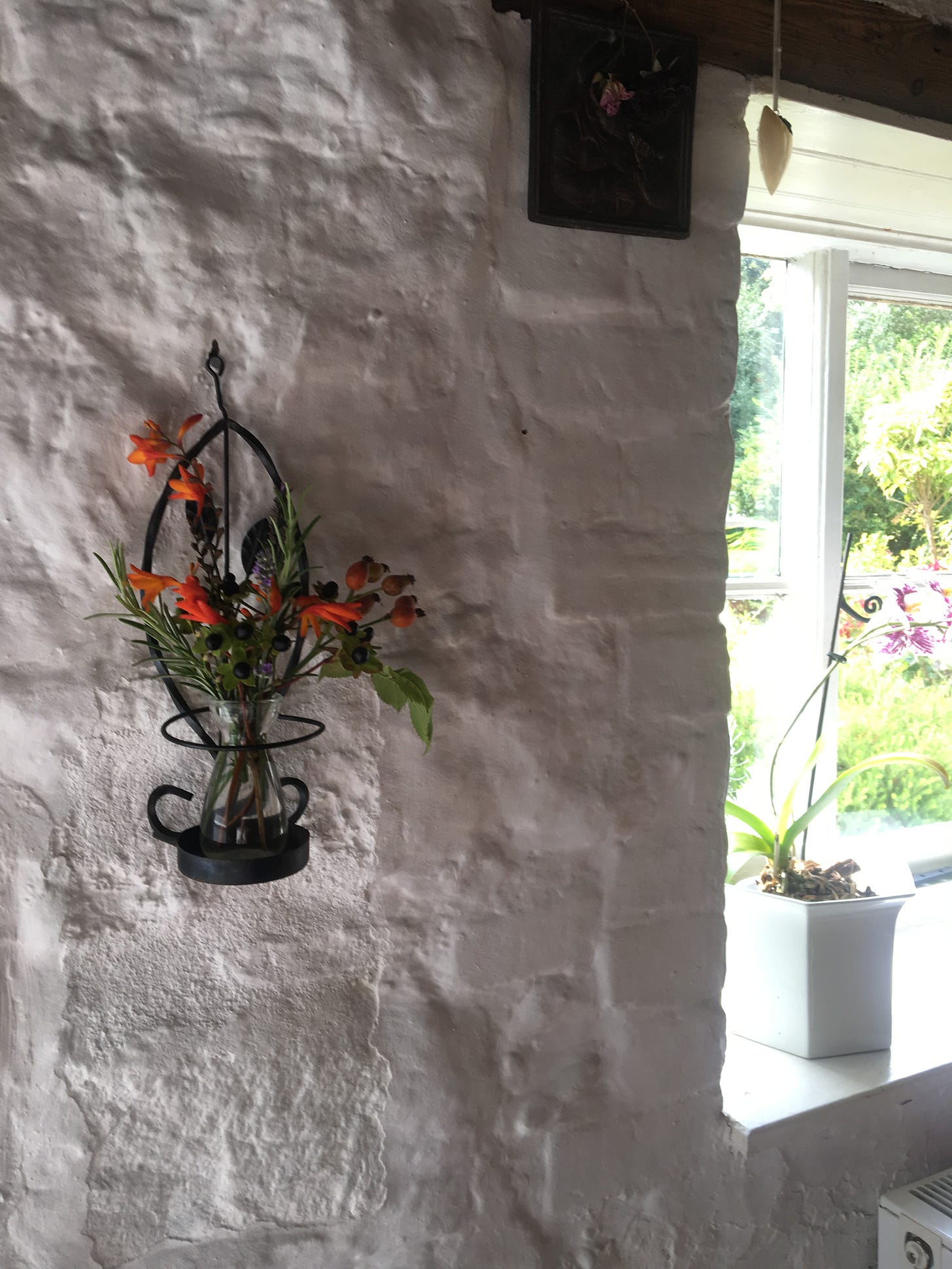
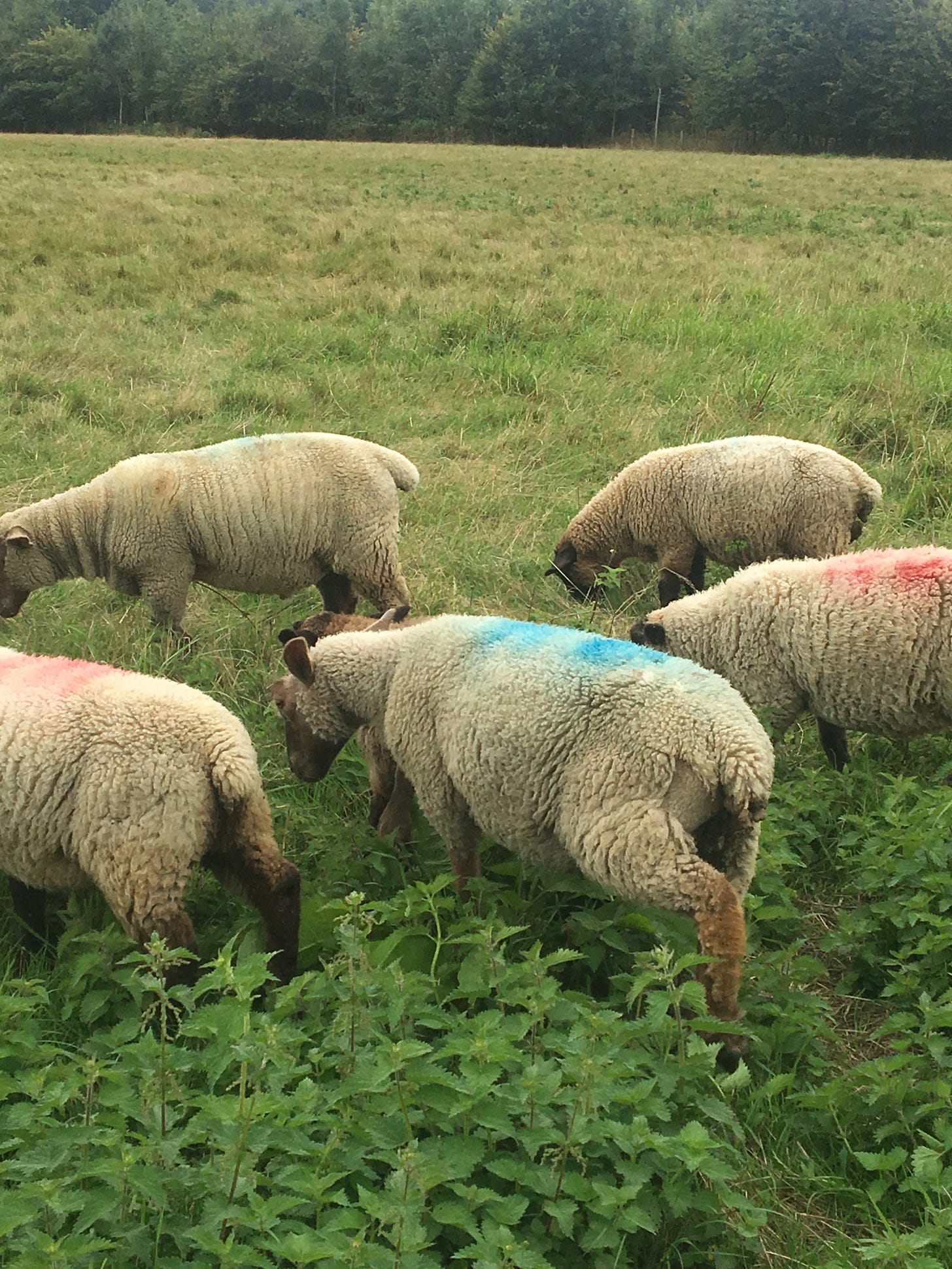
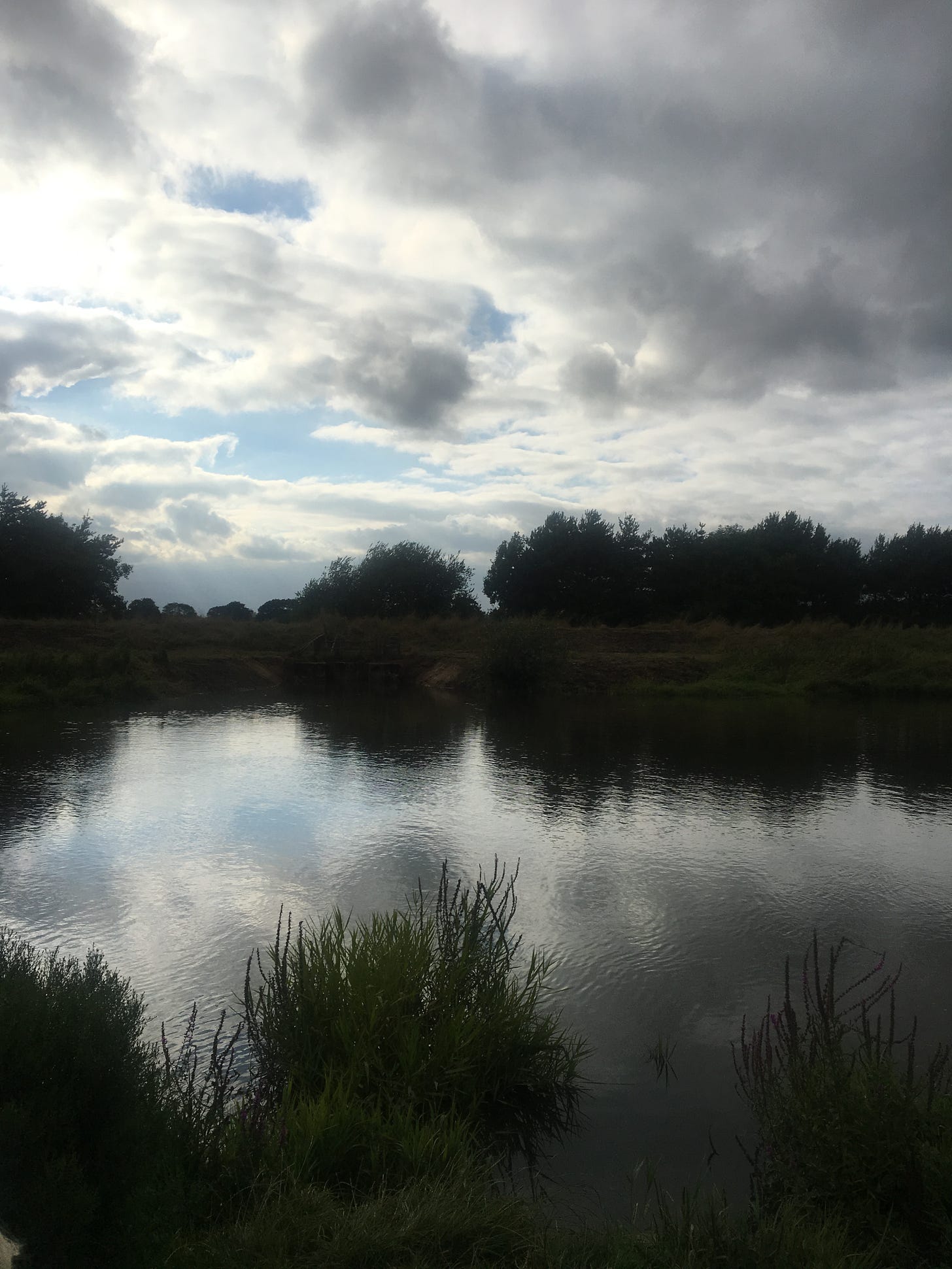
I grew up very close to here, my father’s cottage a few miles away down those tunnel lanes. You describe it all so beautifully, so brilliantly.
Loved every word!